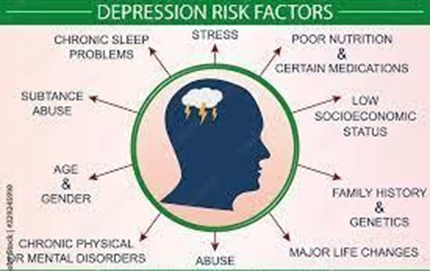A patient diagnosed with major depressive disorder begins selective serotonin reuptake inhibitor (SSRI) antidepressant therapy. Priority information given to the patient and family should include a directive to do what?
Avoid exposure to bright sunlight
Restrict sodium intake to 1g daily.
Maintain a tyramine-free diet.
Report increased suicidal thoughts
The Correct Answer is D
A. Avoiding exposure to bright sunlight is not specifically related to SSRIs; it may be a
consideration with certain medications due to photosensitivity but isn't a primary concern with SSRIs.
B. Restricting sodium intake isn't a directive associated with SSRI antidepressant therapy.
C. Maintaining a tyramine-free diet is a concern with certain antidepressants like MAOIs (Monoamine Oxidase Inhibitors) but not typically with SSRIs.
D. Reporting increased suicidal thoughts is a crucial directive because SSRIs may initially increase the risk of suicidal ideation, especially in the early stages of treatment.
Nursing Test Bank
Naxlex Comprehensive Predictor Exams
Related Questions
Correct Answer is A
Explanation
A. This statement demonstrates the nurse's willingness to spend time with the patient to build rapport and trust, offering the nurse's presence and support.
B. This statement expresses hope but doesn't directly offer the nurse's presence or support.
C. This question encourages exploration of the patient's feelings but doesn't directly offer the nurse's presence.
D. This statement shares personal experiences but doesn't directly offer the nurse's presence or support.
Correct Answer is B
Explanation
A. Elevated levels of serotonin are associated with a potential treatment for depression but aren't considered a primary risk factor for developing depression.
B. Past history of childhood trauma, such as abuse or neglect, is a well-established risk factor for the development of depression later in life.
C. Being an only child is not recognized as a primary risk factor for depression.
D. Recent history of stressful positive life events might not be a primary risk factor for depression; in some cases, it could be a protective factor.

Whether you are a student looking to ace your exams or a practicing nurse seeking to enhance your expertise , our nursing education contents will empower you with the confidence and competence to make a difference in the lives of patients and become a respected leader in the healthcare field.
Visit Naxlex, invest in your future and unlock endless possibilities with our unparalleled nursing education contents today
Report Wrong Answer on the Current Question
Do you disagree with the answer? If yes, what is your expected answer? Explain.
Kindly be descriptive with the issue you are facing.
